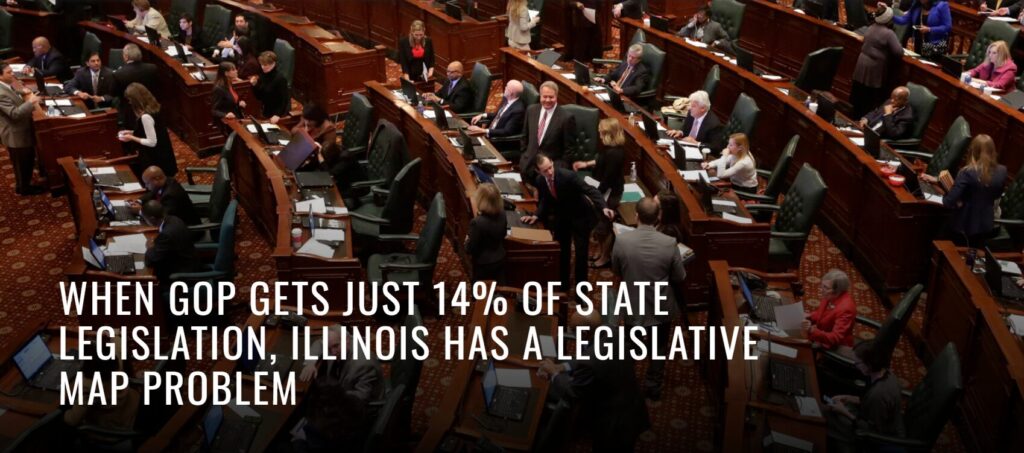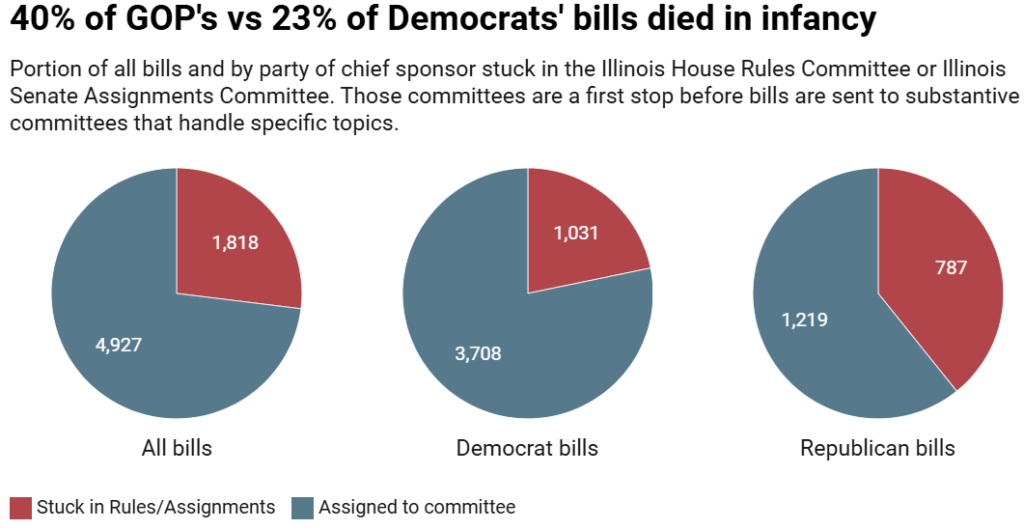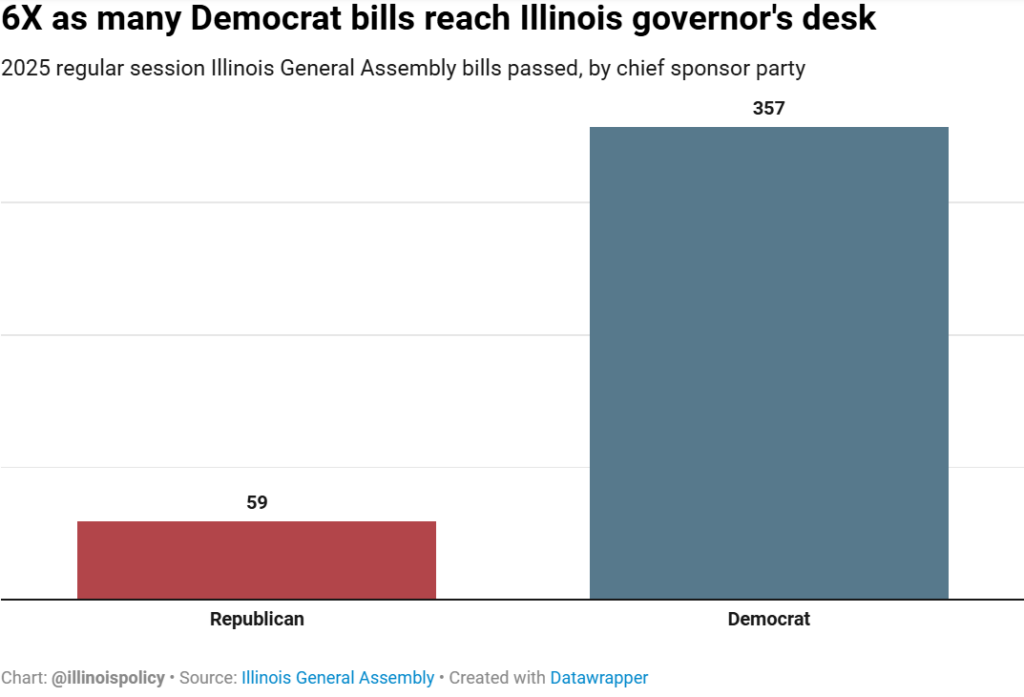From the Illinois Policy Institute:

6,745 bills were filed in the Illinois General Assembly this session, but only a small fraction passed both houses. Of those, 86% were introduced by Democrats. That big disparity is rooted in Democrats drawing legislative districts that shrink opposition.
For the average Illinois lawmaker, passing a bill through the Illinois General Assembly is tough. For the minority party, it’s nearly undoable.
Lawmakers filed 6,745 bills this past legislative session. Only 416 passed both chambers. Of those, only 59 were introduced by Republicans.
Why does that matter? Because Illinois’ Democratic majority has contained its opposition, which represents about 1 in 3 Illinoisans, to the point that their constituents’ concerns rarely get addressed in state law. The main way Democrats have frozen out their Republican peers: partisan gerrymandering of legislative districts.
More Republican bills die before even being heard in a substantive committee
All bills filed in the General Assembly automatically go to the House Rules Committee or Senate Assignments Committee before being referred to an appropriate substantive committee related to its content. In practice, the rules and assignment committees are often where bills go to die. This is particularly true for bills introduced by Republican lawmakers.
Over 40% of Republican-sponsored bills in the 2025 regular session were never referred to a substantive committee, compared to 23% of Democrat-sponsored bills.

Six times as many Democrat-sponsored bills reach the governor
Of the 416 bills sent to Pritzker’s desk, only 59 of them – or 14% – were introduced by a Republican member. Overall, six times as many Democrat-sponsored bills reached Pritzker’s desk than Republican-sponsored ones.

The partisanship extended farther than whose name was printed as a sponsor on the bill. The fiscal year 2026 budget included $1.5 million in pet projects for each Democratic House member’s district and $3 million per Democratic Senator: a total of $237 million in pork projects. Republicans got nothing. The excluded Republican districts contain over 4 million Illinoisans .
The uneven playing field shows the need to end political gerrymandering
Democrats’ dominance in the Statehouse is in no small part because of the corrupt practice of partisan gerrymandering that skews in their favor. In the 2022 midterm elections, for example, House Democrats maintained a supermajority even while Republicans actually received more votes overall.
Redistricting reform is popular across the ideological spectrum, and most voters back replacing a lawmaker-controlled process with an independent redistricting commission. For Illinoisans to have a government that represents all its citizens, and not just those with a Democrat for a lawmaker, partisan gerrymandering needs to end.
